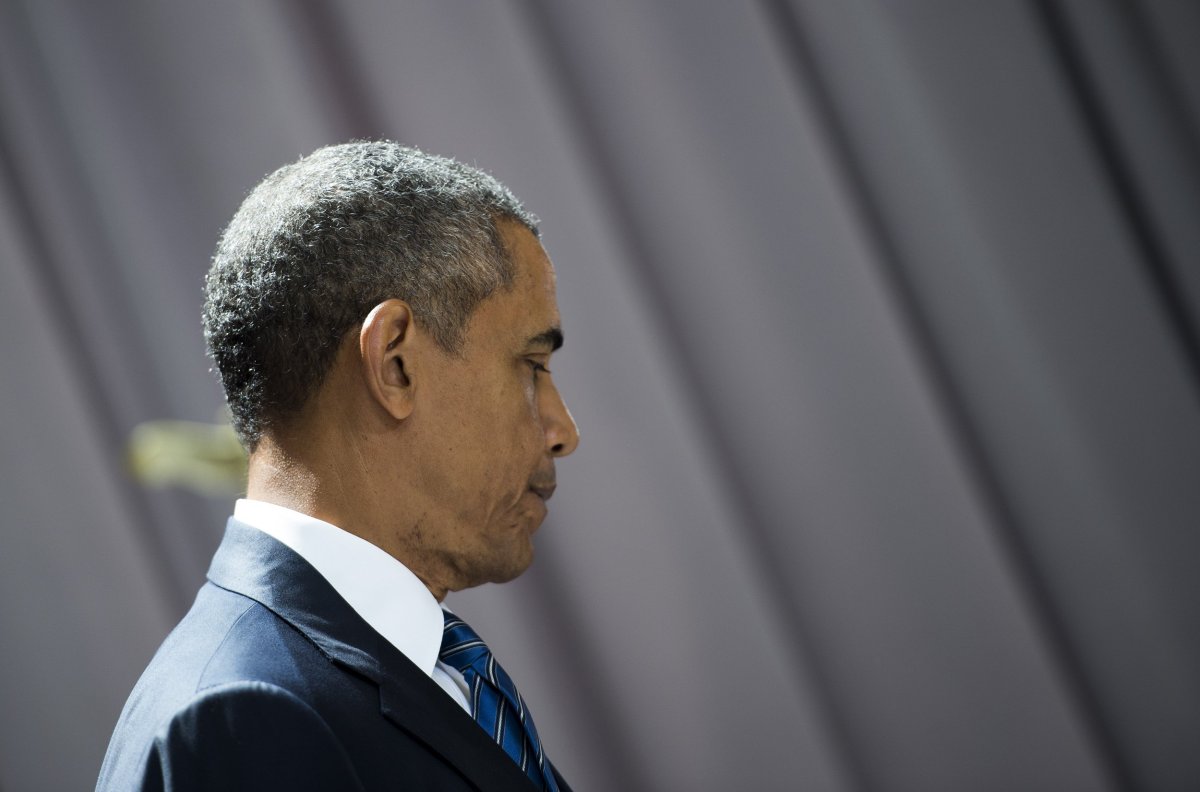In recent years, Iran has become even more committed to destroying its perceived enemies—starting with America—and Iranian citizens are paying the price. Most recently, respected civil rights attorney Nasrin Sotoudeh has been jailed for representing women who protested the country's compulsory hijab law.
Iran's rulers have plunged the country into economic crisis with their international wars. But despite violently cracking down on spontaneous anti-government demonstrations, smaller protests and strikes have continued. The U.S. must support these protests, because past American meddling in Iran is partly to blame for this state of affairs.
It was sanctions imposed by President George W. Bush and later Barack Obama that forced the regime to negotiate JCPOA, the Joint Comprehensive Plan of Action. President Donald Trump's withdrawal from the nuclear deal and promise of new sanctions have battered the Iranian rial.
Tehran officially sets the exchange rate to the dollar at over 40,000 rials, but banks cannot buy dollars at that rate—black market rates are around 70,000. Expecting Iran's currency to plunge when increased sanctions begin, citizens have been buying dollars. The government arrests people trading above the official level, but black market trading continues.
Iran's morality police have also failed, with some protests led by women who remove and wave their head-coverings. Masih Alinejad, who started the movement, had to flee the country. Others face sentences of 74 lashes and have served jail-time, but protests continue.
Iran used the money it made from the JCPOA and other sources of trade to fund its Middle East militias. It pours money into Syria's reconstruction, and uses its involvement in the civil war to secure an Iranian crescent to the Mediterranean.
Responding to America's withdrawal from JCPOA, Tehran is now building centrifuges to increase uranium enrichment, but that exacerbates its people's needs and may alienate remaining signatories of the JCPOA.
Security forces have crushed major protests in Iran over the last decade, including the 2009 Green Movement, led by citizens outraged by Mahmoud Ahmadinejad's theft of an election, and the spontaneous protests that began last December. Despite threats, beatings and murders, educated, religiously tolerant and poor pious citizens marched.
When Ayatollah Khomeini's 1979 revolution created the present fundamentalist regime, the religious poor were its primary supporters. Their participation in protests now underscores just how bad things have gotten in Iran.
In 1953, American and British intelligence directed a coup against Iran's democratically-elected Prime Minister Mosaddegh. Mosaddegh had intended to nationalize Iran's oil industry, then dominated by Britain. Prime Minister Churchill and President Eisenhower also feared Mossaddegh, supported by Iran's communist party among others, would embrace Moscow. Mosaddegh, had other priorities; he thought the Shah should be a ceremonial leader only and opposed fundamentalist Ayatollah Kasha, whom 1979-Ayatollah-to-be Khomeini venerated. In facilitating the coup, America and Britain bear inadvertent responsibility for the trajectory towards Iranian theocracy.

Washington is thus morally obliged to oppose fundamentalist persecution of minorities and crackdowns on dissidents.
The Obama administration, obsessed with rapprochement with Tehran, abandoned Green Movement protesters, but America recently sought support for Iran's spontaneous demonstrators at the U.N. Security Council. Russia, China, economically motivated traders and others chastised Washington for attacking internal Iranian matters. The U.S. approached the Human Rights Council for symbolic support, but that cadre opposed action.
Symbolic setbacks should not deter the U.S. from action. The international community, seeing Washington's moral responses, can be moved to help Iran's people. Apologists like E.U. foreign policy chief, Federica Mogherini, soft voiced for the sake of trade about Tehran's persecutions, must be challenged.
Former Secretary of State Hillary Clinton deeply regrets not supporting Iranian protesters. Let us not deeply regret abandonment. We should continue to speed symbolic resolutions to outlaw Iran's ballistic missile program, which is tied to atomic weapons. But the U.N., as now constituted, will demure.
Secretary of State Mike Pompeo demands that Iran ends ballistic missile research, stop uranium enrichment and curtail destabilizing activities. Signatories of the JCPOA who want to save it can be persuaded to back new sanctions in return for U.S. support of an improved nuclear deal.
Further, international leaders should hold Tehran responsible for civil rights abuses. Wider travel bans, resource prohibitions and asset freezes would force the theocracy to reform.
Social media rallying behind the Iranian people will thwart the regime's attempts to restrict the internet, curb coordination among protesters and intercept information leaving the country.
Iran's citizens and protesters, with free world support, can win constructive change. Iranian leaders must rise to serve their citizens and play a positive role in the Middle East and the world.
Jonathan Wachtel served as Director of Communications and Spokesperson for the U.S. Mission to the United Nations. As a journalist he covered global conflicts for ABC, Fox and Worldwide Television News. Albert Wachtel, a professor at Pitzer College, one of the Claremont Colleges, has written for many national journals and newspapers. He has four books out.
The views expressed in this article are the author's own.
Uncommon Knowledge
Newsweek is committed to challenging conventional wisdom and finding connections in the search for common ground.
Newsweek is committed to challenging conventional wisdom and finding connections in the search for common ground.
About the writer
To read how Newsweek uses AI as a newsroom tool, Click here.








